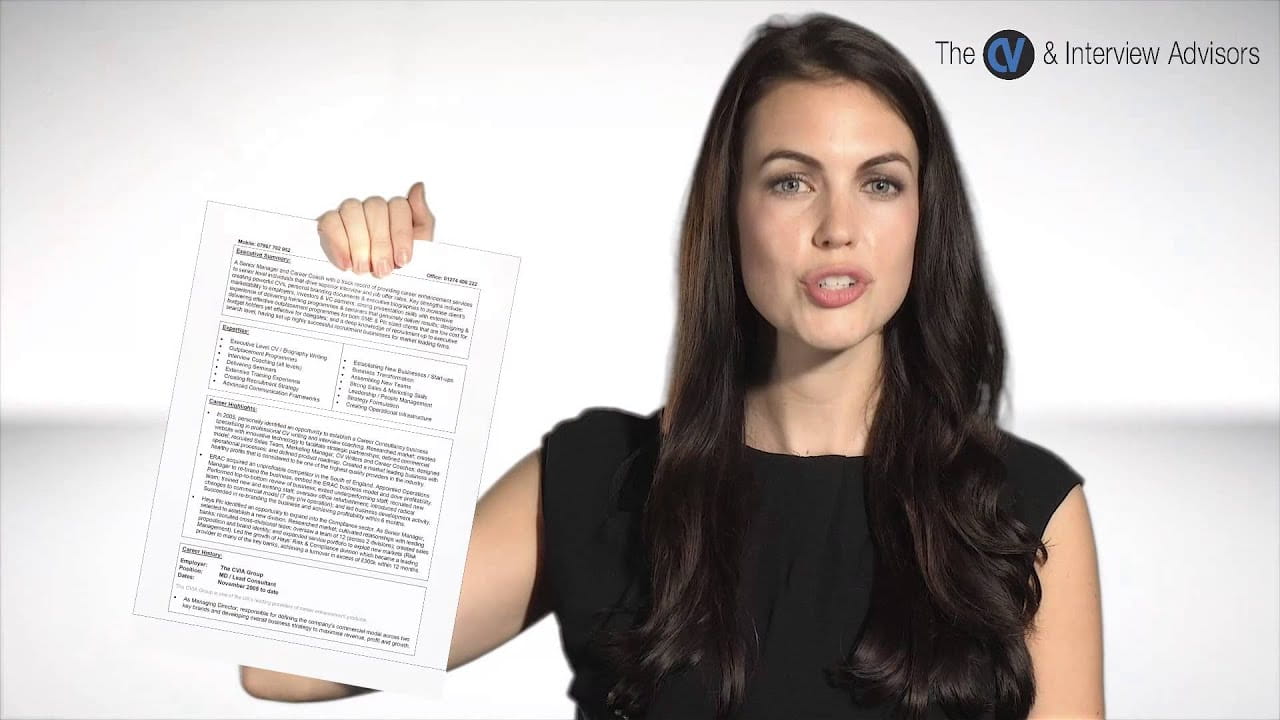- Home
- CV Writing
- Resume Writing
- LinkedIn Profile Writing
- Interview Coaching
- Career Coaching
- Outplacement Services
- Partner Program
- News & Videos
- About
- Contact
Send us your details using the form below and we'll call you back as soon as possible.

News
How your appearance can affect job seeking
Discrimination in the UK job market are still a significant levels - whether it be name, age, sex or ethnic background based, people have a hard time overcoming their own prejudices when hiring. Having been involved in the recruitment changes triggered by the new Age Discrimination legislation in 2006, it was really interesting to analyse the attitudes people had towards individuals from certain age groups and how job seekers were categorised based on the hiring manager’s view of the world. I suppose its human nature to ‘put people in boxes’ but when recruiting, best practice is to leave those prejudices behind and focus on selecting the best candidate for the job.
The recent study around the prejudice experienced by ‘attractive’ woman is a microcosm of recruitment discrimination as a whole; it all boils down to the inability of recruitment decision makers to identify and set aside their own prejudices. From a personal branding perspective, one would assume that being attractive would be a blessing but it appears from the research that attitudes of female HR professionals can have a negative impact on the chances of attractive females securing an interview.
The research was predicated upon sending CVs to companies with a photograph included; the results were then assessed based upon the ‘attractiveness’ of the job seeker. It was found that attractive male candidates had better results but attractive female candidates had to send on average 4 more CVs before receiving an interview that those deemed by the researchers to be more ‘plain’ in appearance.
As surprising as these results are, it has always been considered a recruitment faux pas to use photographs on CVs in the UK job market to the extent that recruiters will often have a giggle at candidates who have included a photo and assume that they are lacking some level of savvy to take this route. The advice has always been to avoid photos, not just because it is ‘not the done thing’ but because regardless of your level of attractiveness, your appearance can and often will trigger prejudices in the mind of the recruitment decision maker. The way someone looks can trigger deep emotional responses – think about how many times you have heard someone say “I don’t like the look of him or her”. The point is, don’t give recruiters, HR professionals or hiring managers the opportunity to judge you on your appearance and simply do not include a photo on your CV.
As well as appearance, name discrimination is a huge issue and there have been a number of high profile individuals including recruitment experts and MPs who have pushed for CVs to be anonymised. This is a view that I personally agree with - there are operational issues to consider if names are left off CVs but as a career professional, I can tell you wholeheartedly that your name has an impact on your ability to secure interviews, particularly in the SME sector. We have written CVs for over 18,000 clients and it is as clear as day that names synonymous with different ethnic backgrounds have an impact but also, names considered old fashioned could have an impact on how dynamic a candidate might appear. A scenario where names and photographs are omitted from CVs would level the playing field and in my opinion, create a much fairer and just recruitment landscape.
Now there’s only one problem, but it is a rather large problem and that is - 85% of recruitment decision makers will check out the LinkedIn profile of shortlisted candidates prior to selecting them for interview; it is considered a recruitment faux pas NOT to have a photograph on your LinkedIn profile; and it is impossible to effectively anonymise a LinkedIn profile. Not to mention that many candidates are sourced directly through LinkedIn in the first place.
In short, the advent of LinkedIn as a recruitment tool renders anonymisation of your CV somewhat moot (although if it becomes common practice to omit names from CVs then there is no obvious navigation to a LinkedIn profile). A great deal of thought would have to go into how to truly anonymise the entire recruitment process to create a level playing field for job seekers and this would involve big changes to recruitment practices that would be resisted at a tactical level. It would possibly require the likes of LinkedIn to have ‘anonymous functionality’ to accommodate those companies who embraced the anonymisation of the recruitment and selection process or companies would simply need to remove LinkedIn as a recruitment channel which many would be loathed to do.
It’s a complex issue and in all walks of life discrimination exists; leaders in the recruitment market can start making steps towards a fairer and more just landscape but in the meanwhile, don’t have a photo on your CV but do have one on LinkedIn (regardless of how attractive or otherwise you are). What you can do is make sure your photograph gives off the right message - if it looks like you are flaunting your good looks then that could trigger a negative response – don’t adopt some kind of smouldering lingerie catalogue pose, instead look professional and perhaps adopt a more approachable and humble inner demeanour before the photo is taken. Take 20 or so snaps with different poses, different smiles and different inner demeanours and analyse the results. Give the photos to friends and colleagues and ask them which gives off the best image.
To conclude, be aware of the prejudices that exist but also be true to yourself – if you’re lucky enough to be a ‘looker’ then sending those extra 4 applications might be a price worth paying.
Share this post:
Managing Director
